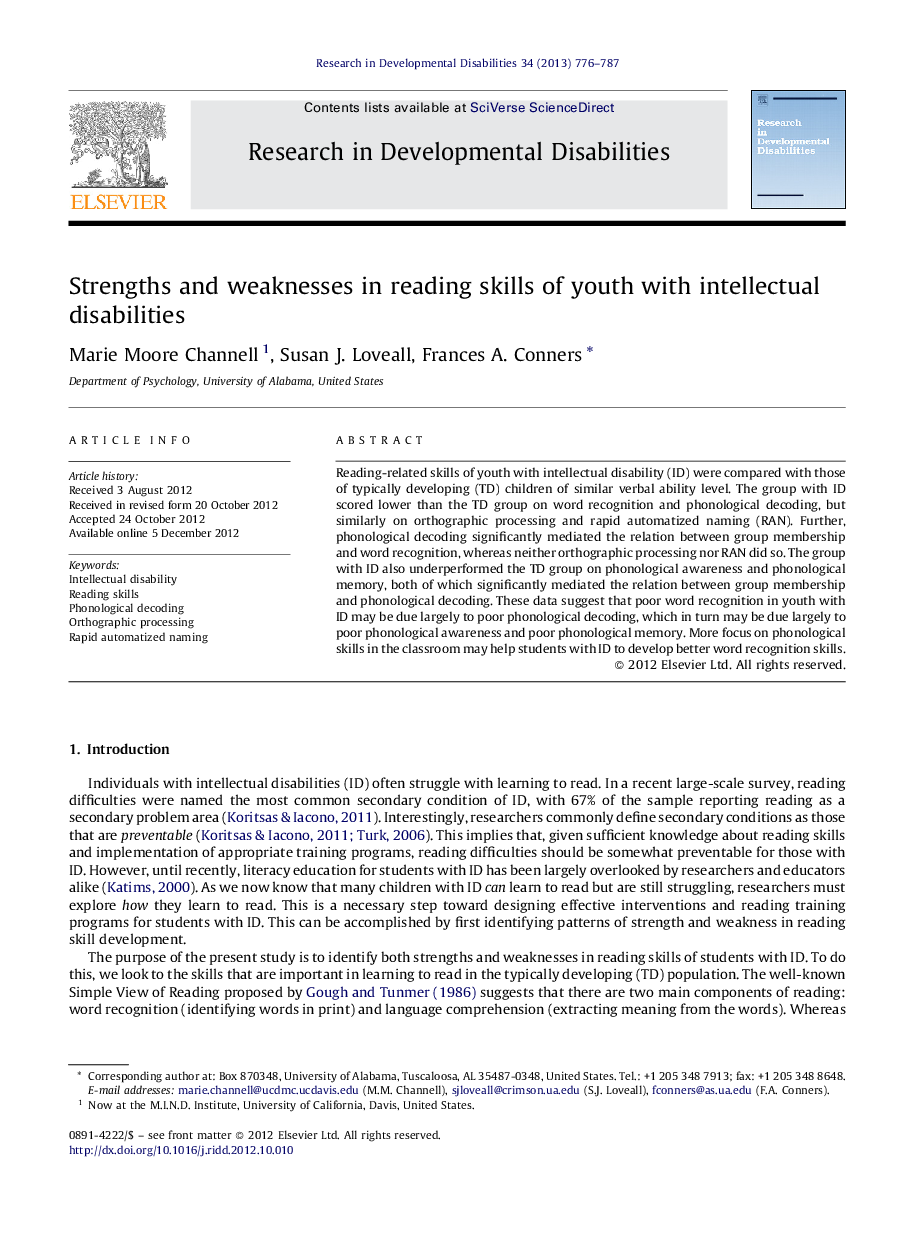| Article ID | Journal | Published Year | Pages | File Type |
|---|---|---|---|---|
| 371522 | Research in Developmental Disabilities | 2013 | 12 Pages |
Reading-related skills of youth with intellectual disability (ID) were compared with those of typically developing (TD) children of similar verbal ability level. The group with ID scored lower than the TD group on word recognition and phonological decoding, but similarly on orthographic processing and rapid automatized naming (RAN). Further, phonological decoding significantly mediated the relation between group membership and word recognition, whereas neither orthographic processing nor RAN did so. The group with ID also underperformed the TD group on phonological awareness and phonological memory, both of which significantly mediated the relation between group membership and phonological decoding. These data suggest that poor word recognition in youth with ID may be due largely to poor phonological decoding, which in turn may be due largely to poor phonological awareness and poor phonological memory. More focus on phonological skills in the classroom may help students with ID to develop better word recognition skills.
► Youth with ID were poor in word recognition compared to verbal skill-matched TD children. ► They were poor in phonological decoding but not in orthographic processing or RAN. ► Phonological decoding mediated the relation between group and word recognition. ► Youth with ID were also poor in phonological awareness and phonological memory. ► These poor phonological skills explained the group effect on phonological decoding.
